The new subject of ‘Topic’in HD Primary Curriculum
In this article we will explore the reasons why we have added this subject into our Primary Curriculum .
Reading
The process of learning to read fluently is a complex one that requires a focus on several different strands. A useful model for reading is Scarborough’s ‘reading rope’ model from the Education Endowment Foundation’s Improving Literacy at Key Stage 2 Guidance Report:
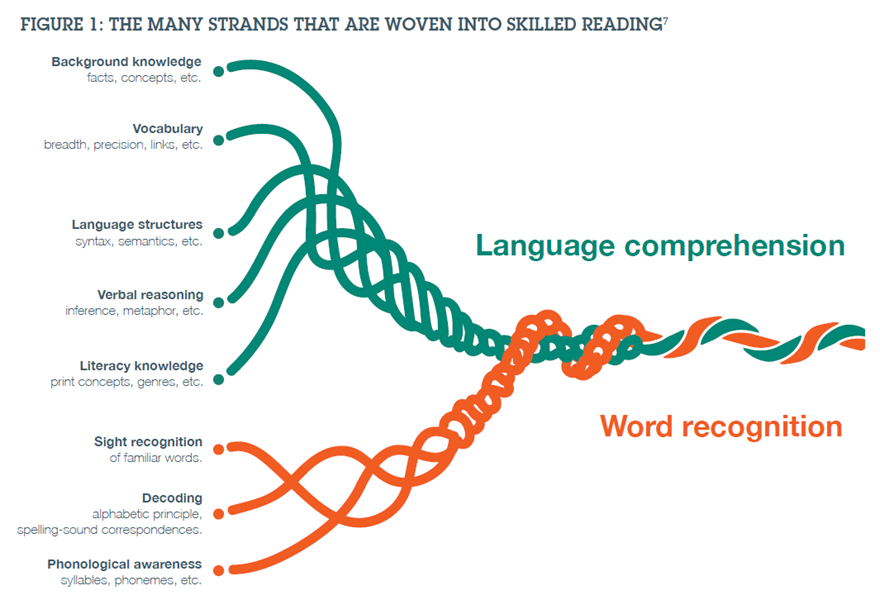
Here we can see that phonological awareness (Phonics) and the ability to recognize and decode words from a text are the essential foundational skills that children require to be able to read. At HD Qingdao we use a high quality phonics programme, Read Write Inc, to ensure that our children acquire the essential word recognition skills as early as possible in their Primary Education.
Once children have mastered the word recognition skills and can sound out and blend sounds from a page to form words, comprehension becomes the main challenge. So what are the most effective ways to teach reading comprehension?
Increasing Demands on Comprehension
As the students pass through Primary School, the texts that they read become more complex, meaning that we place greater expectations on children to coordinate meaning from beginning to end. Research over the last 30 years has shown that knowledge of specific topics is a powerful aid to comprehension.
The Importance of Background Knowledge
In Raising Kids Who Read, Daniel Willingham (2015) provides an example of the powerful role that background knowledge plays to comprehension. In one Primary School, children took standardised tests of their verbal comprehension and reasoning skills. They were also tested on their knowledge of football. The researchers then separated the students in to four groups based on their football knowledge (high or low) and their general verbal and reading skills (high or low). Then students read a story about football and experimenters measured their comprehension and recall:
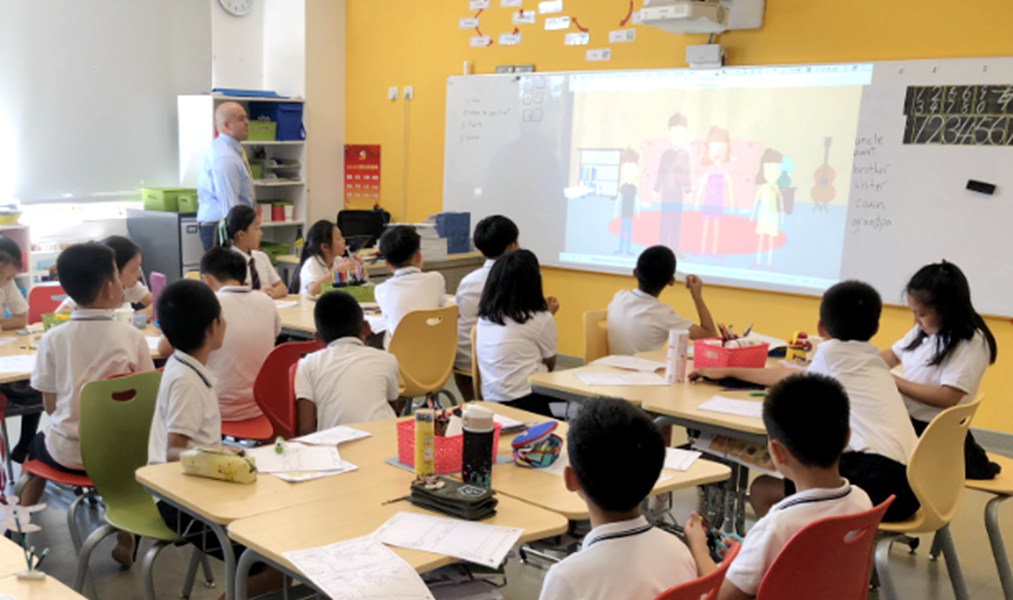
In the experiment, “verbal skill”, or general reading skills, didn’t mean much compared to knowledge. Knowing the rules and the kinds of things that happen during a football game enabled those children who had been identified as poor readers to score highly in the comprehension test based on the football story.
The Importance of Acquiring Background knowledge
This is just one example from the growing body of research drawn from the past 30 years that shows that reading depends on a broad knowledge of all subjects including history, geography, science, mathematics, literature, drama, music and so on. If we want our students to be able to read and comprehend English fluently, we cannot afford to simply focus on reading during English lessons. We need to expand our students’ knowledge of the world so that their vocabulary expands and they are more likely to be able to comprehend the increasing complexity of the texts that they will encounter as part of their education.
Topic at HD Qingdao
As a way of helping our students increase their general knowledge of the world, expand their vocabulary, and improve their comprehension of English, we have added ‘Topic’ to the International curriculum this year. In this subject the children learn important knowledge about the world they live in and this also helps us meet our vision of educating the globalized Chinese leaders of tomorrow.
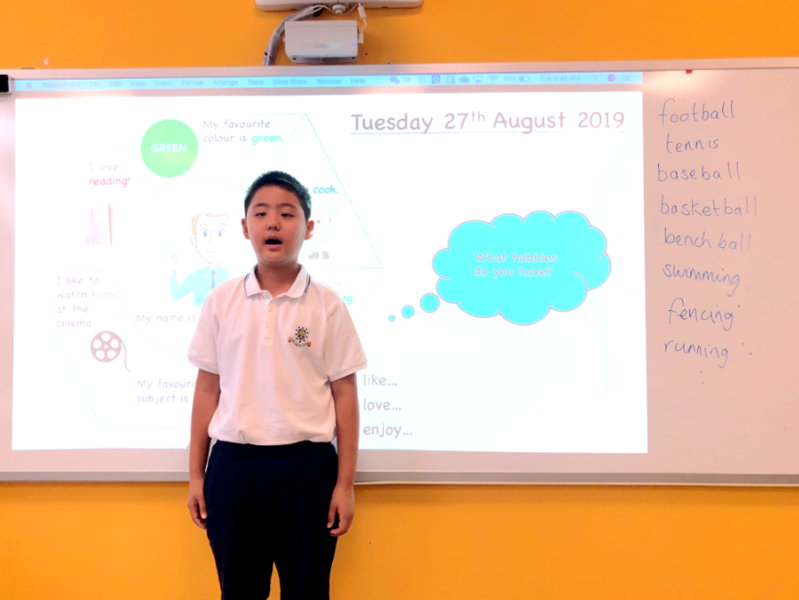
We have sequenced the curriculum so that the children in Grade 1 learn about the things that are most immediate to them; their family and their local surroundings. From there, we expand outwards. Over the course of their time in our Primary School, the children will learn about the geographical features of China, they will learn about the great rivers of the world and the different continents. Topic will also support learning in Science and the children will learn about the weather cycle, electricity and how volcanoes are formed among many other things. Please see the example Topic Maps below from Grade 1 and Grade 4:
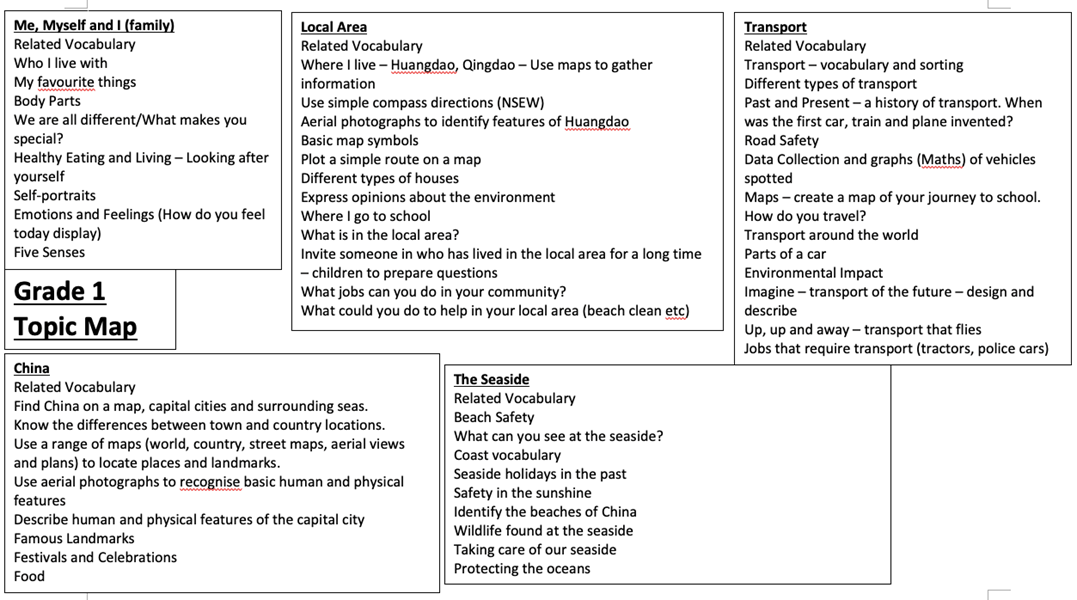
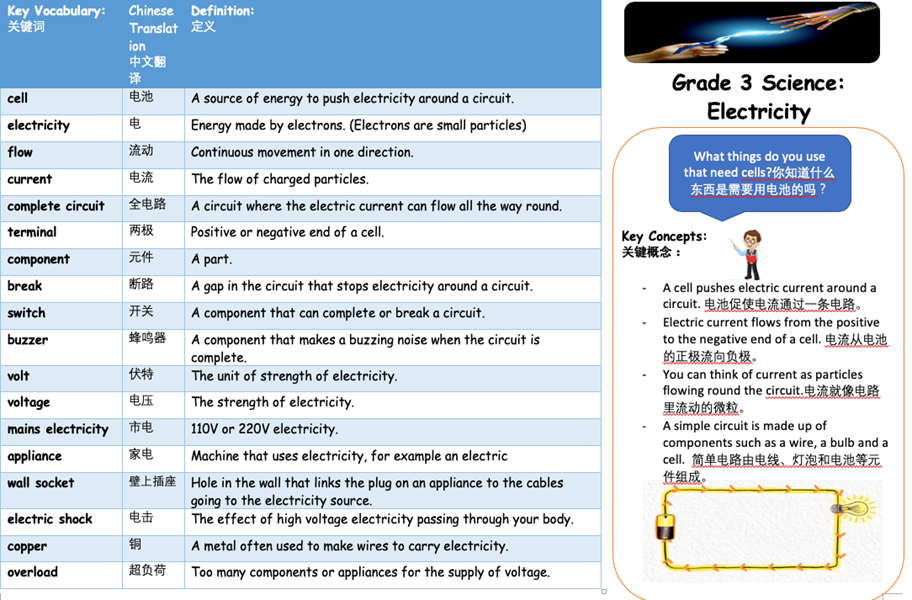
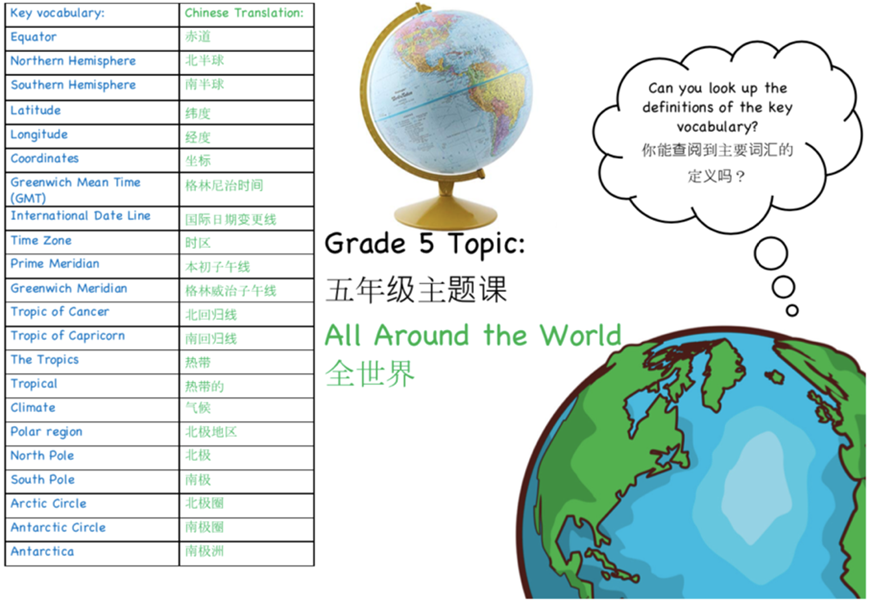
Knowledge Organisers
To help our students learn all the knowledge and vocabulary required, our teachers create Knowledge Organisers for each topic covered in this subject. Each Knowledge Organiser captures the key information, concepts and terminology for our students to refer to, rehearse and revise as they learn:
Summary
Research over the past 30 years has shown that after children have mastered phonics and decoding, they need to acquire a wide body of general knowledge and increase their general vocabulary to aid reading comprehension.
At HD Qingdao we teach general knowledge through Science and Topic and carefully increase the students’ vocabularies, using Knowledge Organisers to support this process.
Through engaging and fun lessons, our students develop a global outlook and a deep understanding of the world they live in.
As the American educator, academic and literary critic, E.D Hirsch, has said, “Our students become more intelligent when they know more. So does everybody. Researchers have been telling us this fact about human intelligence for many years. Intelligence increases with knowledge. General knowledge is the best single tool in a person’s intellectual armory.” (Hirsch, E.D 1999)
Thus, we intend to increase our students’ intellectual armory through Topic.


